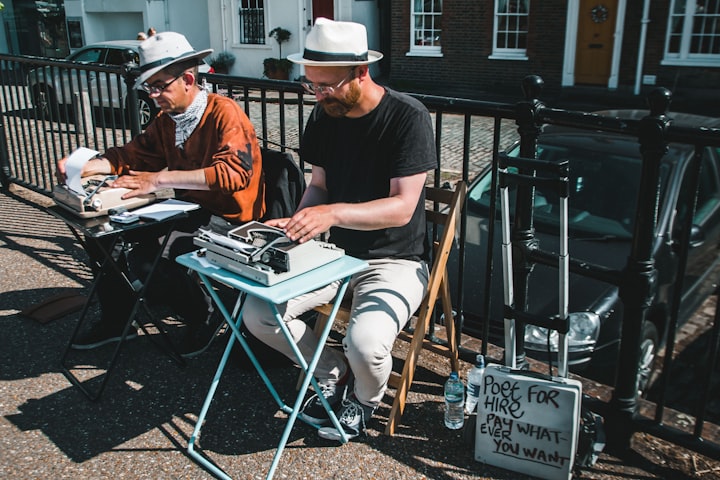Famous poets throughout history
Legacy in Verse: Exploring the Enduring Influence of Famous Poets Throughout History

Poetry, with its ability to encapsulate the essence of the human experience in a few carefully chosen words, has long been celebrated as one of the most profound forms of artistic expression. Throughout history, visionary poets have emerged, leaving an indelible mark on the literary landscape and shaping the way we perceive the world around us. In this exploration of famous poets throughout history, we delve into the lives and works of some of the most influential voices in poetry, whose enduring legacy continues to inspire and captivate readers across generations.
Ancient Poets:
The origins of poetry can be traced back to ancient civilizations, where oral traditions and epic storytelling played a central role in cultural and religious practices. From the epic poems of Homer, such as the "Iliad" and the "Odyssey," to the lyrical verses of Sappho, the ancient Greeks and Romans laid the foundation for Western poetry, exploring themes of heroism, love, and the mysteries of the natural world.
Medieval Poets:
During the Middle Ages, poetry flourished as a means of expression for both religious and secular themes. In Europe, troubadours and minstrels composed ballads and romances that celebrated chivalry, courtly love, and the ideals of knighthood. Meanwhile, in the Islamic world, poets such as Rumi and Hafiz crafted exquisite verses that explored the depths of spiritual longing and divine love, leaving a lasting legacy of mystical poetry that continues to resonate with readers today.
Renaissance Poets:
The Renaissance marked a golden age of poetry, as humanist scholars and artists sought to revive the classical ideals of ancient Greece and Rome. In Italy, poets like Dante Alighieri, Petrarch, and Giovanni Boccaccio pioneered the use of vernacular language in their works, paving the way for the development of modern Italian literature. In England, the Elizabethan era produced literary giants such as William Shakespeare, Edmund Spenser, and John Donne, whose sonnets, plays, and metaphysical poetry continue to be studied and admired for their depth, complexity, and beauty.
Romantic Poets:
The Romantic movement of the late 18th and early 19th centuries ushered in a new era of poetic expression, characterized by a focus on emotion, imagination, and the natural world. Poets such as William Wordsworth, Samuel Taylor Coleridge, and Percy Bysshe Shelley rejected the rationalism of the Enlightenment in favor of a more intuitive and subjective approach to art, exploring themes of nature, love, and the sublime in their works. Meanwhile, in America, writers like Walt Whitman and Emily Dickinson forged their own unique poetic voices, challenging conventional forms and themes with their bold experimentation and introspection.
Modernist Poets:
The early 20th century saw a revolution in poetry, as modernist writers broke free from traditional forms and conventions to explore new modes of expression. Poets like T.S. Eliot, Ezra Pound, and Wallace Stevens experimented with fragmented language, stream-of-consciousness narration, and the use of symbolism and imagery to convey the fractured and disillusioned consciousness of the modern world. Meanwhile, in Ireland, the poet W.B. Yeats infused his verse with Celtic mythology and folklore, creating a body of work that is at once timeless and rooted in the cultural heritage of his homeland.
Contemporary Poets:
In the 21st century, poetry continues to thrive as a vibrant and diverse art form, with poets from around the world exploring a wide range of themes, styles, and voices. From the socially engaged poetry of Langston Hughes and Maya Angelou to the experimental verse of Sylvia Plath and Allen Ginsberg, contemporary poets continue to push the boundaries of form and content, using their art to engage with pressing issues of race, gender, identity, and social justice.
Conclusion:
From the ancient epics of Homer to the contemporary works of today's poets, the history of poetry is a rich tapestry of voices, styles, and perspectives that reflect the diversity and complexity of the human experience. As we look back on the legacy of famous poets throughout history, we are reminded of the enduring power of poetry to inspire, provoke, and illuminate the world around us. In the words of the poet Robert Frost, "Poetry is when an emotion has found its thought and the thought has found words." Through their timeless verse, these poets have given voice to the ineffable truths of the human heart, leaving behind a legacy that will continue to resonate with readers for generations to come.
About the Creator
JOSIAH NWOKO
Enchanting Stories: Embark on unforgettable journeys to fantastical worlds and alternate realities with my enchanting stories, where dreams come alive and anything is possible Join me on a literary adventure. #Writer #Poet #Storyteller






Comments
There are no comments for this story
Be the first to respond and start the conversation.